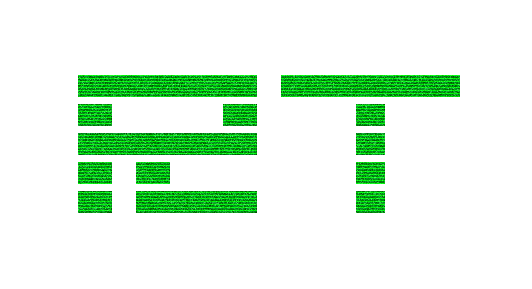Hey everyone, Phil Robb here from Robb.Tech. As part of our weekly IT advice series, I want to talk about something important today—a scam that’s been popping up more and more lately. It’s not just another phishing email or fake tech support call; this one’s a bit sneakier, and it involves something many of us use without thinking twice: online file converters.
I recently came across a warning from the FBI Denver Field Office about this, and it’s something we all need to pay attention to—whether you’re running a business or just managing your personal tech at home. At Robb.Tech, we’re all about giving you practical, usable IT advice, so let’s dive into what this scam is, why it’s a big deal, and how you can protect yourself.
What’s the Scam All About?
So, here’s the deal: scammers are using free online document converter tools to trick people into downloading malware. You know those websites that let you convert a Word doc to a PDF, combine multiple images into one file, or even download MP3s or videos? According to the FBI, criminals are rigging these tools with a nasty surprise. The tool does what it promises—converts your file or downloads that video—but the file you get back has hidden malware baked into it. Once that malware’s on your computer, it can give scammers access to your system without you even knowing.
It’s clever because it plays on trust. The tool works as advertised, so you don’t suspect anything’s wrong until the damage is already done. And with so many of us relying on quick online fixes like these, it’s an easy trap to fall into.
Why This Matters: The Risks
Once that malware sneaks onto your computer, it’s bad news. Here’s what could happen:
- Ransomware: Your files get locked up, and the scammers demand payment to (maybe) unlock them. For a business, that could mean losing access to critical data and grinding operations to a halt.
- Identity Theft: The malware can scrape personal info like your Social Security number, banking details, or even cryptocurrency wallet info. Next thing you know, your accounts are drained or your identity’s stolen.
- System Compromise: Scammers could get ongoing access to your computer or network, spying on everything you do or using your system to attack others.
The worst part? You might not notice until it’s too late—when your files are gone, your bank account’s empty, or a client calls asking why their data’s been breached. For businesses especially, this can mean downtime, lost revenue, and a hit to your reputation.
How to Protect Yourself
The good news is you don’t have to be a victim. Here’s some practical advice to keep you safe:
- Avoid Online File Converters: It’s best to steer clear of online file converters altogether, especially for sensitive documents. Vetting these tools can be tricky, and the risks often outweigh the convenience. Instead, use trusted software installed on your computer or reach out to us at Robb.Tech for help with file conversions. We’d rather handle a quick support ticket than see you face a costly security breach.
- Ensure Your Antivirus Is Up to Date: Modern antivirus software should automatically scan files when you download or access them. Make sure your AV software is set to update automatically and that real-time scanning is enabled. This acts as a constant security checkpoint for your system.
- Watch What You Upload: If a file has sensitive info—think financial data, client details, or personal identifiers—don’t upload it to an online converter. You never know who’s on the other end collecting that data.
- Trust Your Gut: If a site looks shady, the download’s taking forever, or something feels off, bail out. It’s not worth the risk.
For businesses, this is doubly important. One infected computer can spread malware across your network, so make sure your team knows these tips too.
If You Think You’ve Been Affected
Every scam or malware situation is different, and a professional needs to take a close look to sort it out completely. That said, here are some general steps we often recommend to help limit the damage until expert help arrives:
- Cut the Connection: Disconnect your computer from the internet right away. This stops malware from phoning home to the scammers.
- Scan Your System: Run a full scan with updated antivirus software to track down and remove any threats. If you’re stuck or it’s not working, don’t worry—we can help.
- Reset Passwords: Change passwords for key accounts (banking, email, etc.) from a clean, trusted device to keep scammers from grabbing the new ones.
- Check Your Accounts: Review bank and credit card statements for anything suspicious. Let your financial institutions know what’s happened—they can step in to secure things.
- Report It: File a report at www.ic3.gov with the FBI’s Internet Crime Complaint Center. It’s fast and helps the authorities track these crooks.
Heads Up: These are just the big items to tackle first—they’re not a replacement for professional help. The best move is to get an expert involved ASAP. Give us a call at Robb.Tech (806-370-4700), and we’ll dig into the specifics of your situation to get it resolved properly.
How Robb.Tech Can Help
At Robb.Tech, we’re here to keep you and your tech safe. For years, we’ve been a trusted provider of IT support, networking, and VOIP services to local businesses. If you’re dealing with a malware mess, need a secure network setup, or just want some advice on staying safe online, we’ve got your back. Call us at 806-370-4700—we’re always happy to help.
Wrapping Up: Stay Smart, Stay Safe
The FBI’s right—education’s the best way to beat these scammers. By knowing what to look out for and taking a few simple steps, you can keep your data and your business out of harm’s way. And if something does go wrong, don’t hesitate to reach out.
Until next week, stay safe out there!
— Phil Robb, Robb.Tech
